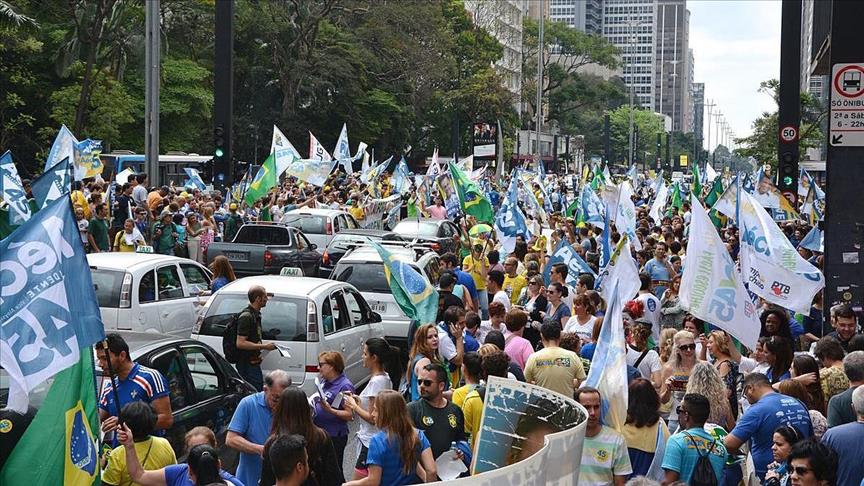Brazil records 1.5M lost jobs in 2015
Job losses worst result in 24 years

By Ben Tavener
LONDON
Brazil lost 1.54 million jobs in 2015, officials said Thursday, as the country's economy continues to contract amid the worst recession in a generation.
Industrial, civil construction and services sectors were worst affected, according to statistics issued by Brazil's Ministry of Labor and Employment, which represent the worst result in 24 years.
Labor Minister Miguel Rossetto admitted 2015 had been a "difficult" year. "It is not a good result. We saw a reduction in jobs and average salaries, but the victories of previous years have been preserved as the level of jobs remains high," Rossetto was quoted by local media.
"It is not correct to say that 2015 razed those victories," he added.
Brazil is estimated to have lost nearly 600,000 formal work positions in December 2015 alone, according to the Valor Econômico business news site.
In 2014, Brazil created 420,000 formal jobs.
The country's unemployment rate had previously been relatively low, despite the poor state of the economy -- something President Dilma Rousseff boasted about in the run-up to the 2014 presidential elections.
Last year, however, it finally began to rise, reaching 9 percent between August and October, according to the latest official data.
Rousseff said last week that the government was making "every effort" to avoid increasing the rate of joblessness, which she labeled "of great concern".
According to the International Monetary Fund, Brazil's economy shrank an estimated 3.8 percent in 2015, and is projected to decrease by 3.5 percent in 2016 and record zero growth in 2017.
The annual rate of inflation rose to 10.67 percent in 2015, the highest level in 13 years and well above the official central target of 4.5 percent.
Speaking at the World Economic Forum in Davos, Brazil's new Finance Minister Nelson Barbosa said the country was in a "transition phase" after the decline of the global commodity boom. "Brazil is adjusting to this international scenario," he said.
The government has struggled to force measures through Congress to bring the economy back to growth -- including new and increased taxes, and spending cuts -- but plans have faced stiff resistance from anti-austerity politicians.
The central bank on Wednesday held the benchmark SELIC interest rate at 14.25 percent, despite widespread expectations of an increased -- a step seen by analysts as dictated by the government.
And the real weakened against the U.S. dollar Thursday after the surprise rate decision, initially slumping 1.8 percent to 4.17 reais, but later pared losses to 4.15 by 15.00 GMT.
The real has weakened nearly 5 percent in January, after about one-third of its value against the dollar in 2015.
Two major credit rating agencies in 2015 stripped Brazil of its prized investment grade rating -- a move that legally obliged investors to reassess funds held in the country.
Anadolu Agency website contains only a portion of the news stories offered to subscribers in the AA News Broadcasting System (HAS), and in summarized form. Please contact us for subscription options.







